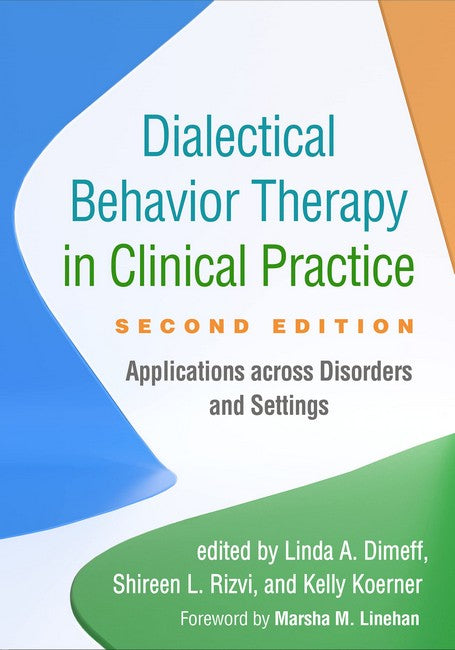Linda A. Dimeff, PhD, is Chief Scientific Officer at the Evidence-Based Practice Institute, Institute Director at Portland DBT Institute, and Clinical Faculty in the Department of Psychology at the University of Washington. Since 1994, Dr. Dimeff has collaborated closely with Marsha M. Linehan to develop and evaluate an adaptation of DBT for substance-dependent individuals with borderline personality disorder; to produce DBT training materials for clinicians; and to train, consult, and supervise clinicians in their practice of DBT. She has worked with public- and private-sector systems throughout the world in their efforts to implement DBT. Dr. Dimeff is a recipient of the Cindy J. Sanderson Outstanding Educator Award from the International Society for the Improvement and Teaching of DBT.She has received over 20 federal grants to facilitate the dissemination of evidence-based therapies and has published over 55 peer-reviewed publications.
Shireen L. Rizvi, PhD, ABPP, is Associate Professor of Clinical Psychology in the Graduate School of Applied and Professional Psychology at Rutgers, The State University of New Jersey. At Rutgers, she holds affiliate appointments in the Department of Psychology, School of Arts and Sciences, and the Department of Psychiatry, Robert Wood Johnson Medical School. Her research interests include improving outcomes, training, and dissemination of DBT for the treatment of complex and severe problems. Board certified in Behavioral and Cognitive Psychology and in Dialectical Behavior Therapy, she is past president of the International Society for the Improvement and Teaching of DBT and was the Societys Conference Program Chair for 2 years. Dr. Rizvi is a recipient of the Spotlight on a Mentor Award from the Association for Behavioral and Cognitive Therapies and the Presidential Fellowship for Teaching Excellence from Rutgers.
Kelly Koerner, PhD, is CEO of Jaspr Health (www.jasprhealth.com) and Clinical Faculty in the Department of Psychology at the University of Washington. Weaving science, design, and social entrepreneurship, she develops highly collaborative, technology-based solutions to get evidence-based practices (EBPs) to the right point of care. Dr. Koerner has extensive practical experience in supporting individuals and systems as they learn, implement, and sustain EBPs in diverse settings. Most recently, she and her human-centered design team have worked closely with scientists, people with lived experience, and emergency medicine providers to develop a tablet-based application for suicidal people. She maintains an active research program and is a recipient of the Career Achievement Award from the Dissemination and Implementation Science Special Interest Group of the Association for Behavioral and Cognitive Therapies.

